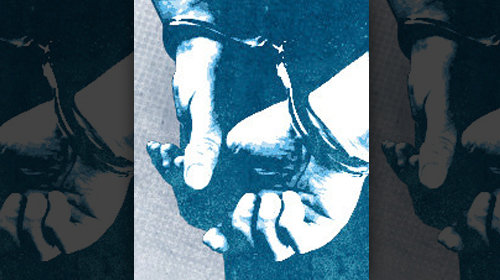
Today, the U.S. has the highest incarceration rate of any country in the world. With over 2.3 million men and women living behind bars, our imprisonment rate is the highest it's ever been in U.S. history. And yet, our criminal justice system has failed on every count: public safety, fairness and cost-effectiveness. Across the country, the criminal justice reform conversation is heating up. Each week, we feature our some of the most exciting and relevant news in overincarceration discourse that we've spotted from the previous week. Check back weekly for our top picks.
Last month, Massachusetts former drug lab employee Annie Dookhan was , including tampering with evidence, for misconduct that may have compromised 60,000 drug samples and jeopardized 34,000 criminal cases. A similar but less publicized event is being investigated and addressed in Texas.
Earlier this year, the blog Grits for Breakfast that a controlled substances analyst at a state crime lab in Houston, Jonathon Salvador, was terminated when it was discovered he reported on a sample of drugs without testing them. After looking at more of his casework, state officials discovered similar misconduct in several other cases, calling into question any conviction based on his work. Mr. Salvador had worked on nearly 5,000 cases across 36 counties.
A based on Mr. Salvador's work in Galveston County have already been reversed. A was set aside this week, and it looks as if it will extend even farther. This week, the Texas Supreme Court that anybody who has been convicted based on the now-suspect evidence has a right to a new trial, or maybe even a dismissal. You can find the full slate of Grits' detailed reporting on this investigation .
Here are some other interesting items from the past week:
- The U.S. Supreme Court decided Maryland v. King this week, creating a gaping new exception to the Fourth Amendment. The issue in this case is whether the government may collect and analyze DNA samples from individuals who have been arrested, but not yet convicted, without a warrant or consent. As Justice Scalia's dissent convincingly demonstrates, DNA testing of arrestees has little to do with identification and everything to do with solving unresolved crimes. While no one disputes the importance of that interest, the Fourth Amendment has long been understood to mean that the police cannot search for evidence of a crime ÔÇô and all nine justices agreed that DNA testing is a search ÔÇô without individualized suspicion. This week's decision eliminated that crucial safeguard. Here's ÔÇöread Justice Scalia's dissentÔÇöand here's .
- At the Washington Post, George Will authored about the Federal Safety Valve Act introduced by Senators Leahy and Paul. Mr. Will concludes this way: "Making mandatory minimums less severe would lessen the power of prosecutors to pressure defendants by overcharging them in order to expose them to draconian penalties. The Leahy-Paul measure is a way to begin reforming a criminal justice system in which justice is a diminishing component." Read his entire argument, and learn more about the bill .
- I wrote previously about Oregon's HB 3194, which in its initial form would have repealed several of the mandatory minimums that contributed significantly to the state's prison population. Those mandatory minimums were passed by voters in 1994's Measure 11. Last week, HB 3194 was amended to exclude repeal of Measure 11 offenses; lawmakers need a 2/3 majority to overturn policies passed by ballot initiatives, and such a majority was not found.
- The amended version of the bill would instead remove the mandatory minimums for repeat property and drug offenders that now exist under Measure 57, along with a number of other reforms. You can read about the latest developments .
- You can review recent activity in state legislatures to reduce prison populations, with contextual information about each state, at our new map.
Learn more about overincarceration and other civil liberty issues: Sign up for breaking news alerts, , and .
